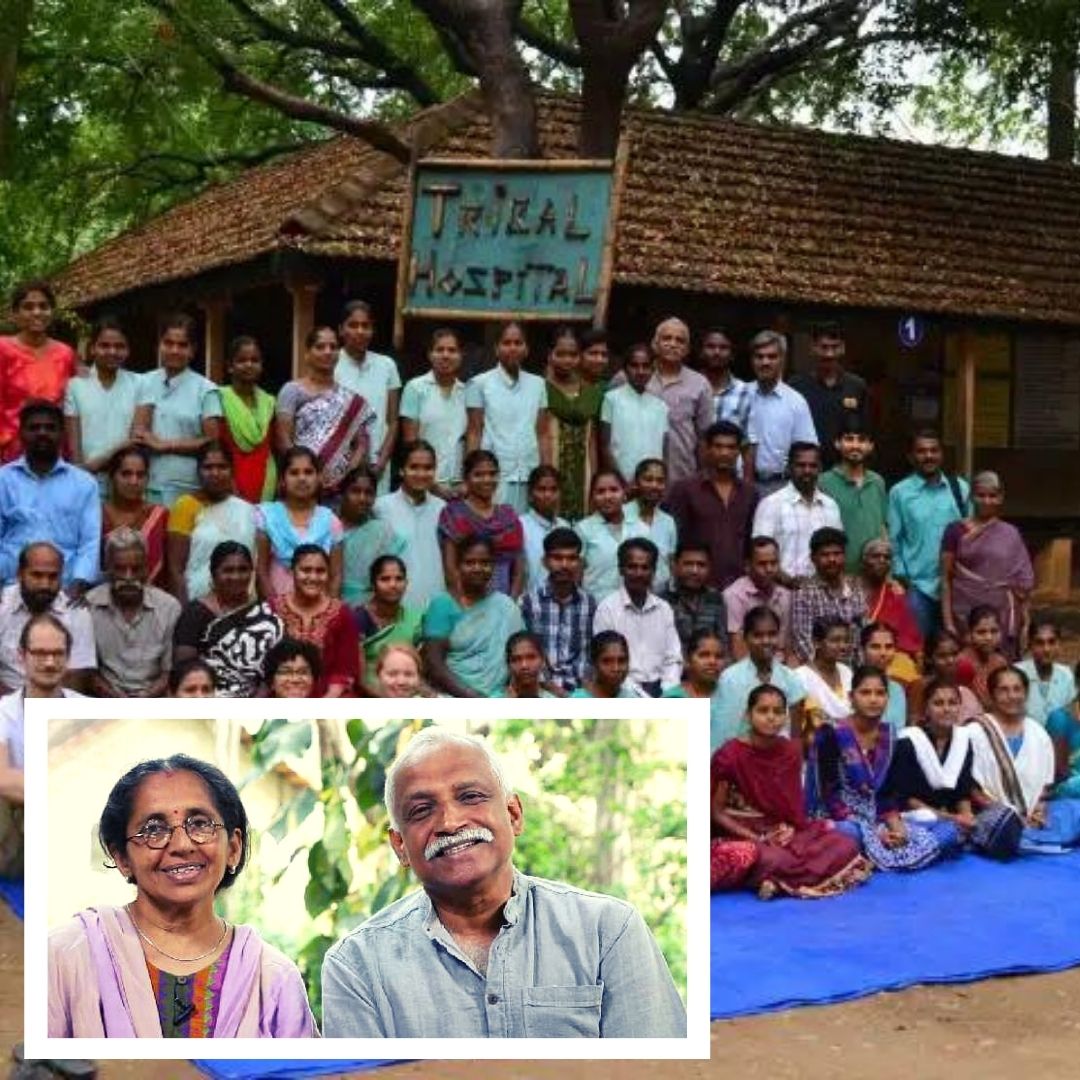
Image Credits: NDTV, Tribal Health Initiative
This Doctor Couple Is Providing Affordable Healthcare To Lakhs Of Tamil Nadu Tribals For Last 30 Years
Writer: Tashafi Nazir
For most people, journalism sounds hectic and chaotic. For her, it's a passion she has been chasing for years. With an extensive media background, Tashafi believes in putting efforts on presenting a simple incident in the most interesting way.
Tamil Nadu, 8 April 2022 10:52 AM GMT
Editor : Shiva Chaudhary |
A post-graduate in Journalism and Mass Communication with relevant skills, specialising in content editing & writing. I believe in the precise dissemination of information based on facts to the public.
Creatives : Tashafi Nazir
For most people, journalism sounds hectic and chaotic. For her, it's a passion she has been chasing for years. With an extensive media background, Tashafi believes in putting efforts on presenting a simple incident in the most interesting way.
Disturbed by the lack of healthcare facilities in Sittilingi valley in 1992, Dr Regi George and Lalitha Regi started the Tribal Health Initiative and established valley's first hospital-cum-patient unit from a small hut.
In 1992, a doctor-couple, Dr Regi George and Lalitha Regi, visited Sittilingi valley, a remote tribal village in Tamil Nadu's Dharmapuri district. During their visit, the two realised that one out of five babies born in the area died even before they turned one-year-old and many mothers died while giving birth.
One of the primary reasons was that the nearest hospital was at a distance of 48 kilometres, and to find one with surgical facilities meant a journey of more than 100 kilometres.
Tribal Health Initiative
Disturbed by the lack of healthcare facilities and the state of people living in the valley, the couple decided to backpack for a year and provide affordable healthcare to over one-lakh people of the valley. Dr Regi and Dr Lalitha started the Tribal Health Initiative and established the valley's first hospital-cum-patient unit from a small hut, NDTV reported.
"So as soon as we completed our studies, we started working in Gandhi Gram, which is situated near Madurai in Tamil Nadu. It is a Gandhian institution and we worked there as clinical doctors. Our five years there helped us get in touch with people who had worked with Gandhiji," Dr Regi George told NDTV.
"Me and Lalitha looked for a place which is far away from health care. After a little research, we ended up in Sittilingi and fell in love with this place. It is full of natural beauty and was populated with nearly 95 per cent tribals," he added.
Dr Regi further recalled that they realised there was no healthcare facility when they came to the valley, because of which people were suffering. "We bought a piece of land and built a hut, which became the first hospital of the valley," Dr Regi recalled.
With the support of friends and a few grants, the duo built a ten-bedded hospital three years later. It had a basic operation theatre, neonatal care, labour room, laboratory and an emergency room.
Training Local Tribal Girls
In 1996, the initiative started training local tribal girls as midwives, health workers and auxiliary nurses. The couple taught these girls to diagnose and treat basic problems at the hospital, assist the husband-wife in the operating theatre, conduct deliveries, care for patients, and go out to the villages for antenatal and child health check-ups.
"Each village in which we work has nominated one married woman, who is trained as a Health Auxiliary," Dr Lalitha Regi said. She pointed out that her work involves offering advice on hygiene, good nutrition, simple ailments, birthing practices, maintaining records on essential health events in the village, and acting as facilitators for all community development work.
To get the education process going, the Tribal Health Initiative organises camps every month, where the Health Auxiliaries gather and meet with each other. During these meetings, they discuss the health of their villages, report births and deaths of village members, and other relevant information.
After some years, the couple expanded the small hut to a 35-bedded hospital with an ICU, operation theatre, neonatal care and a separate maternity ward. Currently, the Tribal Health Initiative's dream of providing affordable primary health care services spreads over 33 villages in the Sittilingi valley as well as the Kalrayan Hills.
Reviving Tribal Art And Forming Organic Farmers
The initiative has not only improved the health of the tribals but also their financial status and community well-being. Under this initiative, the doctor couple has trained tribal women to deliver health to their community and have helped revive tribal art and formed a society of organic farmers, which helps empower the tribal community that they chose to serve.
Explaining the various programmes under the initiative, Dr Regi said that the Tribal Health Initiative does not look at health in isolation. When they think of health, they see it as a people sector rather than private or public. He pointed out that there is a huge potential in people looking after themselves, which is not a stand-alone thing, it has to be linked to economics, food and education.
"Through organic farming programmes, we could persuade the people of the valley to get into millets. For us, millets are a big thing because we think that going back to traditional foods is the only way a society can become nutritionally independent and sufficient. We have not witnessed child and adult malnutrition here for a long period now, because the key was to change that diet," he said.
Sittilingi valley, an impoverished tribal settlement ridden with superstition, is now a socially, financially and politically empowered tribal community because of this doctor couple who dared to walk the path less travelled about 30 years ago.
Also Read: In A First, Weather Stations To Be Set Up At 250 Kerala Schools To Assess Climate Change
 All section
All section














